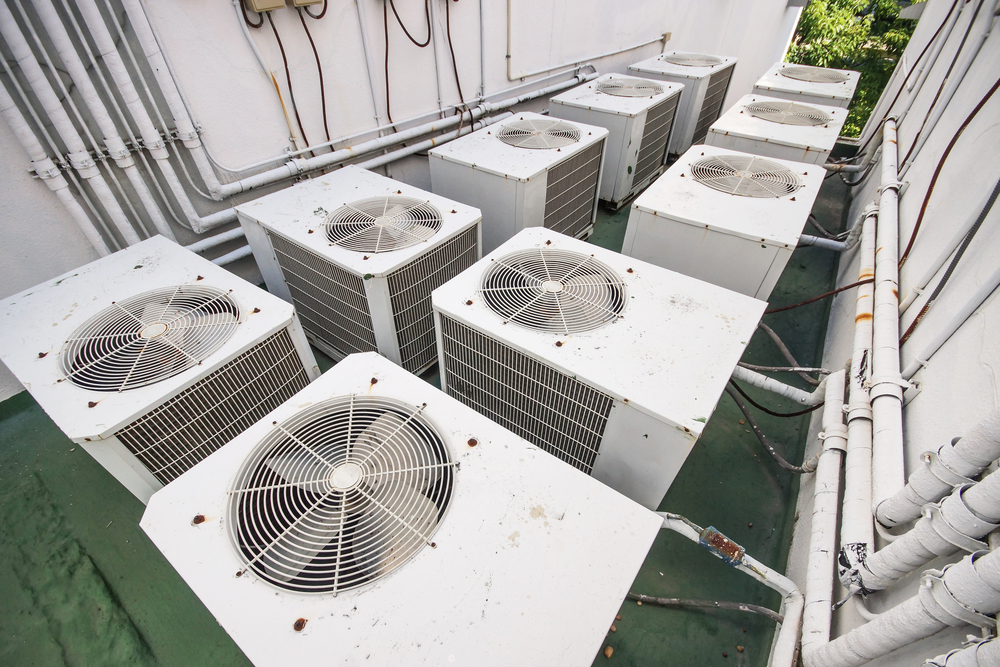Businesses face far greater challenges than homeowners when it comes to determining what kind of HVAC system they should install.
Aside from the fact that the average business is larger than the average home, business owners must create a comfortable environment for customers, clients, and employees. Due to this added concern, business owners must spend more time considering the design of their HVAC system before opening their business. Making a hasty decision about their system may result in spending thousands of dollars more than necessary or failing to create an inviting space for their clientele. Below, we highlight six primary factors that business owners should consider when determining what kind of HVAC system they should install and where it should go.
How the Design of an HVAC System Determines Functionality

HVAC system design has a major impact on how consistently it can cool your business. Here are three ways that your customers and employees may feel the difference, regardless of the type of system you use:
- System Efficiency – Many businesses want to save as much money as possible when operating their commercial HVAC systems. For those businesses, they’ll want to use systems that incorporate heat pumps to move the heat within the building, as well as radiant systems that gradually adjust the temperature and maintain it at the desired level. Additionally, those businesses should invest in systems that have multiple thermostats and can adjust the temperature in each room separately, thereby avoiding situations of overheating or overcooling some areas of the business.
- System Power – The most efficient systems tend to be less powerful at any given point. While they can heat or cool a large building, they may struggle to keep up with the demands of conditioning the air if the doors are always opening and closing. Even if you’re interested in keeping your costs as low as possible, you may need to consider how quickly the system can work when deciding on the design of your HVAC system.
- Differential Heating and Cooling – One major difference between forced air systems and any type of radiant heat or cooling is temperature differential. Forced air systems create periods of heating or cooling that involve blowing the conditioned air into your building. As a result, the spots closed to exhaust vents will heat or cool faster, often creating uncomfortable locations for your guests and employees. On the other hand, radiant HVAC systems tend to be slower and create a more stable temperature.
General Considerations when Deciding on a System for Your Business
It’s impossible to consider your HVAC system by itself in a vacuum. Every business has other factors that influence how well the system can heat and cool, as well as how much it costs.
- Physical Location – If your business owns property on the building’s exterior, you may be able to use systems that involve large exterior units, especially for central cooling. If your business is in a more urban setting, however, this option may not exist. In such a situation, you may want to invest in rooftop units that can maximize your space efficiency relative to how powerful the system is.
- Fuel and Energy Source – Some businesses are fortunate enough to be located adjacent to geothermal reservoirs such as lakes or rivers that allow for additional HVAC options. These geographical features can unlock some of the most efficient HVAC systems. Even if your business is in an urban area without access to geothermal heat, you may still be able to install a solar-powered system, which can offset or eliminate your system’s energy costs. Otherwise, your HVAC system is likely to use a combination of electricity and natural gas to maintain the temperature in your business.
- Installation Budget – Not every business has the budget to install the most efficient systems available. In general, more efficient systems involve a more substantial installation cost. If your business is just getting off the ground or has recently experienced financial difficulties, then you will likely need to compromise between system efficiency and installation cost.
Each of these factors will also influence how much and what kind of maintenance your HVAC system will need on an annual basis. Regardless of the type of system, regular preventive maintenance can help you avoid costly repair and emergency service bills.
Best Advice Regarding the Design of an HVAC System for Your Business
You should consider the above points as general guidelines for what to keep in mind when determining the design of your HVAC system. Ultimately, individual factors that are unique to your business will help you determine which system is best suited to your needs. Consult a licensed and insured HVAC technician to get detailed information about what you can expect from different systems. With their advice, you can then select the best system to provide a comfortable environment for your customers while minimizing your business’s ongoing costs.
